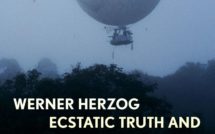

This is part of our special feature, Securitization of Identity.
In recent years, social inclusion processes of migrants have been at the forefront of political debates in the UK and beyond. For example, public attitudes towards immigration have been found to have been primary drivers for the Brexit vote in 2016 (Sobolewska and Ford 2020). Scholars have investigated how sub-state nationalist political parties and governments have sought to promote a more positive image of immigration, in opposition to the majority state level politicians. (Jeram et al. 2016). Scotland, in particular, has sought to present a more receptive attitude towards immigrants. Scottish political actors have used language such as “open,” “welcoming,” and “outward-looking” to describe the country’s more tolerant approach to immigration in opposition to the “hostile environment” policy of the UK government (Goodfellow 2019).
A process of de-securitization?
We continue to see a securitization of migration, particularly on the issue of immigration quotas, from the UK government. The Scottish government, on the other hand, exemplifies a strategy of de-securitization of immigration through the use of policies and political narratives that counter the UK approach. For example, the New Scots Strategy 2018-2022 is a policy designed to support the inclusion of asylum seekers and refugees in Scotland, although it is not legally binding. I have argued that such policies are used to support a narrative of Scottish distinctiveness (Nicolson and Korkut 2021). This narrative has been used to emphasize that the country is both more caring and progressive than other parts of the UK (Gawlewitz 2020).
My PhD research has focused on the lived experiences of young adult migrants in Glasgow, UK. I have explored how a narrative of Scottish distinctiveness influences the interpretation of everyday life experiences, and informs the identity-formation processes of this group of young people. I pay particular attention to how experiences are retold in narrative interviews, and to how migrant identities are negotiated with reference to the macro-narrative in Scotland. The theoretical framework for my project is shaped by Ontological Security Theory (OST).
What is ontological security?
Ontological Security (OS) refers to a person’s sense of existential safety in the world. It was originally used by the psychiatrist RD Laing to explain how his patients lost touch with reality. Later, the theory was revisited by sociologist Antony Giddens (1991), who emphasised the role of routines, societal trust, and biographical narratives in providing individuals with security. Giddens claimed that a disruption to expected everyday encounters would result in existential doubts and, consequentially, ontological (in)security. Ontological (in)security has been defined as being in a state of “perpetual dread” (Ibid). Following Giddens’ rationale, individuals employ various coping mechanisms in order to “bracket out” existential anxieties and continue with their everyday lives.
OS scholarship has featured predominantly in the field of International Relations (IR), often to examine how states interact with one another in moments of conflict and crisis. Rumelili (2014), for example, has argued that states in conflict have a more secure sense of self narrative than those in processes of peaceful resolution. However, in recent years, the theory has also been used by migration scholars to look at the individual security-seeking processes of migrants and minority groups (Botterill et al. 2019). This has helped to shine a light on complex processes of social inclusion for those perceived as the other or threatening to the wider population. It also allows for the identification of specific “coping mechanisms” which are used to counter feelings of insecurity.
How has OS been used in my project?
My research project investigates the lived experiences of a group of young adult migrants living in Glasgow. As part of my research, I conducted a qualitative study with a group of young adult participants of mixed migration background. The age group of my interviewees ranged from eighteen to twenty-six years old. In my project, I used both interviews and visual arts research methods to explore how the participants self-identified and described their experiences of life in Scotland. This involved a both a street photography and a collage workshop. Later, I used the visuals gathered as prompts in in-depth interviews. This process helped the participants to open up about difficult subjects in English, which was a second language for many of them.
Preliminary analysis of results
I now share some preliminary interview results from the participants in my project and explain how I have used analyzed the data using OST. For the study participants, Scotland is defined by a sense of openness and welcoming public attitudes to outsiders. In one example, Abina, described the effect that having a narrative of acceptance in Scotland had on her when she initially moved to the country:
When you come to Scotland and you hear that it’s a welcoming place it kind of puts your mind at ease. It’s much easier than going in to London or some places down south and going in to all the stories around knife crime and hate crime and stuff like that.
In the above quotation, the receptive narrative initially facilitated the process of arrival for Abina. She uses the example of hostile events in London and other places “down south” to position Scotland as more welcoming and open to migrants than other parts of the UK. From an OST perspective, it can be seen that newcomer arrivals in Scotland, who may be disorientated and searching for stability in their lives, are able to establish a degree of certainty and comfort in the certainty that the English other provides. It is important that participants are able to assert their commitment to the Scottish distinctiveness narrative, which can be seen to promote collective values through a normalised relationship with the other (Subotic 2016).
Other participants in my study highlighted the importance of local diversity narratives which were associated with the city of Glasgow. For example, in the following quotations Ahmed and Ali discuss the city motto of People Make Glasgow, which has been used to brand the city as a sociable and inclusive space for people of all backgrounds.
Ahmed: Glasgow, I feel it’s home to be honest. (Be)cause I lived in Scotland more than in my country. For the last twelve years I have been living here, so, as you can see on the streets, there’s always signs that say People Make Glasgow.
Ali: It’s like kinda, People Make Glasgow, it’s welcoming for everyone. This is what I love about Glasgow. Glasgow is not for some people, it’s for everyone. Like of course you get some bad people that don’t like, y’know my colour and stuff, but most people are like absolutely nice, yeah ah love Glasgow, ah love Glasgow.
OS scholars (including Brassett et al. 2021) have argued that minority groups can be encouraged to identify with local signifiers in order to establish security with the national self. In the example above the People Make Glasgow city motto is a local signifier which allows minority groups, including young adult migrants, to formulate part of the “idealized self” and foreground an element of trust in their social environment which is a key component towards achieving OS. This is evidenced in the data where the People Make Glasgow motto is used to justify claims of Scottish tolerance, openness and diversity. However, in the course of my research I also found that the narratives of Scottish distinctiveness encouraged some participants to minimise the seriousness of negative experiences, including racism, that they had encountered in Scotland.
Ali: Like of course you get some bad people that don’t like, y’know my colour and stuff, but most people are like absolutely nice, yeah ah love Glasgow
Viktor: When I used to go to school we used to fight a lot just because I was, you know, with a different colour and I was Roma or they was calling me Gypsy …we used to fight with a gang called GABBA (Get all the Black B******s) in the Gorbals. Ah think it was cos of us teenagers and y’know… it’s just the way you grow up, Scotland’s rough… it’s a jungle. Ye need to survive in the jungle.
In Viktor’s account he appears to discount the seriousness of the violence he was subjected to by providing the explanation that “it was cos of us teenagers” and “it’s just the way you grow up.” Racial violence, as described by Viktor, was part of the coming-of-age experience for Romani migrants of his generation in Glasgow. To accept the significance of the encounter would lead to an experience of ontological insecurity as he would be positioned outside of the broader narrative of Scottish distinctiveness.
Another strategy for minimising racist behaviour takes the form of expressing an understanding for why the hostile group would act in a discriminatory manner to the perceived outsider. For example, in the following extract Esther develops an alien analogy in which she explains that it is normal for locals to react with resistance to newcomer migrant (alien) groups who are identified as different to the wider Scottish population:
Esther: Until the alien actually explains am from this place from, I’m from you know, whatever. This is what we do there like, wow that’s so cool, you know. I’m guessing that’s sort of the same scenario between like you know, the white people and the foreigners if that makes sense?
Esther uses her alien metaphor to illustrate her understanding of why people would possess hostile attitudes to immigrants in Scotland. Her analogy also serves to minimise the impact of racism experienced in the country. Denying the significance of these disruptive everyday encounters offers the young adult migrants the opportunity to resist existential doubts about their place in Scotland through a process of resistance and deflection. Routines and rituals of everyday life can be considered as coping mechanisms which are closely tied to our sense of anxiety and trust in our social surroundings (Giddens 1991). I therefore argue that minimising racism is one coping mechanism which is used by my participants in order to counter feelings of ontological insecurity, which would otherwise have been provoked through these everyday encounters. Minimising the racism experienced also allows migrants to form a closer link with the Scottish conceptualisation of self.
Considerations for future research
An OST approach offers the potential to unpack complex identification processes at a micro-level and its use should not be restricted to the field of International Relations (IR). Furthermore, in my study it has reinforced the strong influence which dominant macro-narratives have over minority groups of the population, including young adult migrants. To counter the macro-narrative; for example, by highlighting the prevalence of racism in Scotland would position the participants as outsiders and exclude their involvement in the Scottish national self. In other words, it would provoke a state of ontological (in)security and give rise to other anxieties. Therefore, as seen in the data, the participants choose to “bracket out” the existential doubts and disruptions to their daily routines through a repetition of the macro-narrative of Scottish distinctiveness.
Recent studies in migration studies have highlighted how Turkish-Dutch young adults adopt specific de-stigmatization strategies to navigate their everyday lives and counter negative perceptions (De Jong and Duyvendak 2021). Hassani (2022) has demonstrated how Muslims in Denmark, which is described as a post-race society, continue to be classified as the racialised other and adopt specific behaviours to resist everyday discrimination. Scholars continue to emphasise that political discourse and macro-narratives of inclusion do not go far enough to improve the lives of young adult migrants.
There is an opportunity to build an interdisciplinary understanding of contemporary migration issues through a broader application of theory. I look forward to sharing more results from my study over the coming years and to contribute towards a growing debate in migration studies about the application of new theory and de-securitization strategies of both states and individuals.
Marcus Nicolson is a PhD candidate at Glasgow Caledonian University, UK. During the spring of 2022 he has been a visiting researcher at EURAC Institute for Minority Rights, Bolzano, Italy. Marcus works in the Horizon 2020 D.Rad research consortium where he explores his interests of identity, political narratives and social inclusion.
References
Brassett, James, Christopher S. Browning, and Alister Wedderburn. 2021. “Humorous states: IR, new diplomacy and the rise of comedy in global politics.” Global Society 35, no. 1: 1-7. https://doi.org/10.1080/13600826.2020.1828302
Botterill, Kate, Hopkins, Peter and Gurchathen Sanghera. 2019. “Young people’s everyday securities: pre-emptive and pro-active strategies towards ontological security in Scotland”, Social & Cultural Geography, vol. 20, no. 4, pp. 465-484. https://doi.org/10.1080/14649365.2017.1346197
Croft, Stuart. 2012. Securitizing Islam: Identity and the search for security. Cambridge University Press.
de Jong, Judith, and Jan Willem Duyvendak. 2021. “Claiming the right to belong: de-stigmatisation strategies among Turkish-Dutch Muslims.” Identities: 1-21. https://doi.org/10.1080/1070289X.2021.1949816
Gawlewicz, Anna. 2020. “‘Scotland’s different’: Narratives of Scotland’s distinctiveness in the post-Brexit-vote era.” Scottish Affairs 29, no. 3 (2020): 321-335. https://doi.org/10.3366/scot.2020.0326
Giddens, Anthony. 1991. Modernity and Self-Identity: Self and Society in the Late Modern Age. Cambridge: Polity Press.
Goodfellow, Maya. 2019. HOSTILE ENVIRONMENT: How Immigrants Become the Scapegoats. S.L.: Verso.
Hassani, Amani. 2022. “Navigating Racialised Spaces: Young Muslims Negotiating a Middle-Class Position in Denmark.” Nordic Journal of Social Research 13, no. 1: 67-79. https://doi.org/10.18261/njsr.13.1.6
Jeram, Sanjay, Arno Van Der Zwet, and Verena Wisthaler. 2016. “Friends or foes? Migrants and sub-state nationalists in Europe.” Journal of Ethnic and Migration Studies 42, no. 8: 1229-1241. https://doi.org/10.1080/1369183X.2015.1082286
Laing, Ronald David. 1960. The Divided Self: A Study of Sanity and Madness. London: Tavistock.
Nicolson, Marcus, and Umut Korkut. 2021. “The making and the portrayal of Scottish distinctiveness: How does the narrative create its audience?.” International Migration. https://doi.org/10.1111/imig.12944
Rumelili, Bahar. 2014. “Ontological (in) security and peace anxieties: a framework for conflict resolution.” In Conflict Resolution and Ontological Security, pp. 24-44. Routledge.
Sobolewska, Maria, and Robert Ford. 2020. Brexitland: Identity, diversity and the reshaping of British politics. Cambridge University Press
Subotić, Jelena. 2016. “Narrative, ontological security, and foreign policy change.” Foreign policy analysis 12, no. 4: 610-627. https://doi.org/10.1111/fpa.12089
Published on April 18, 2022.




